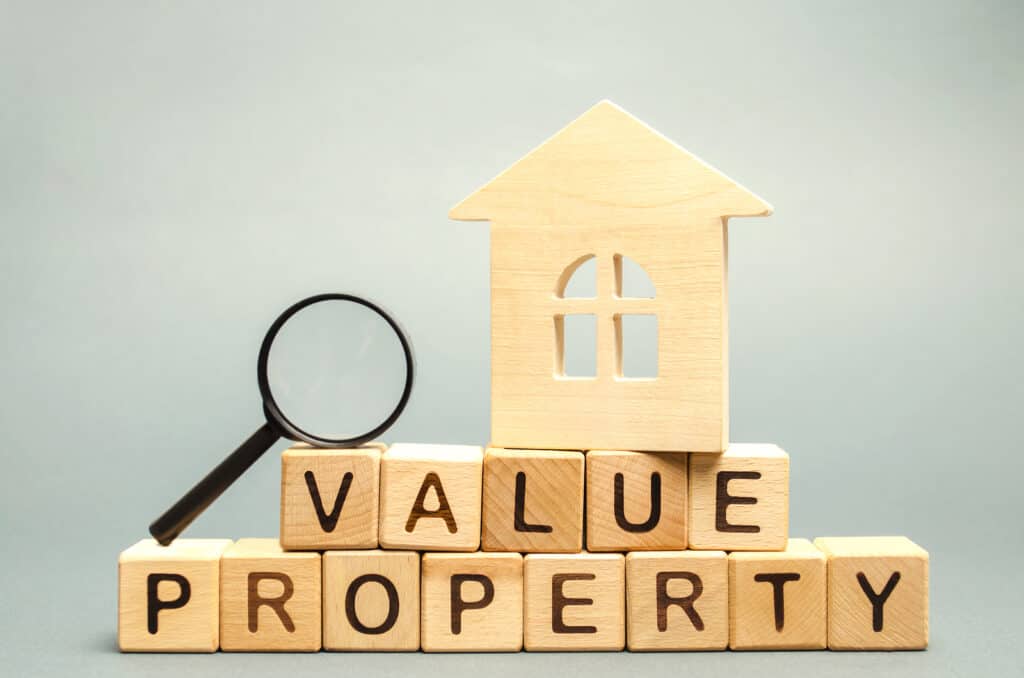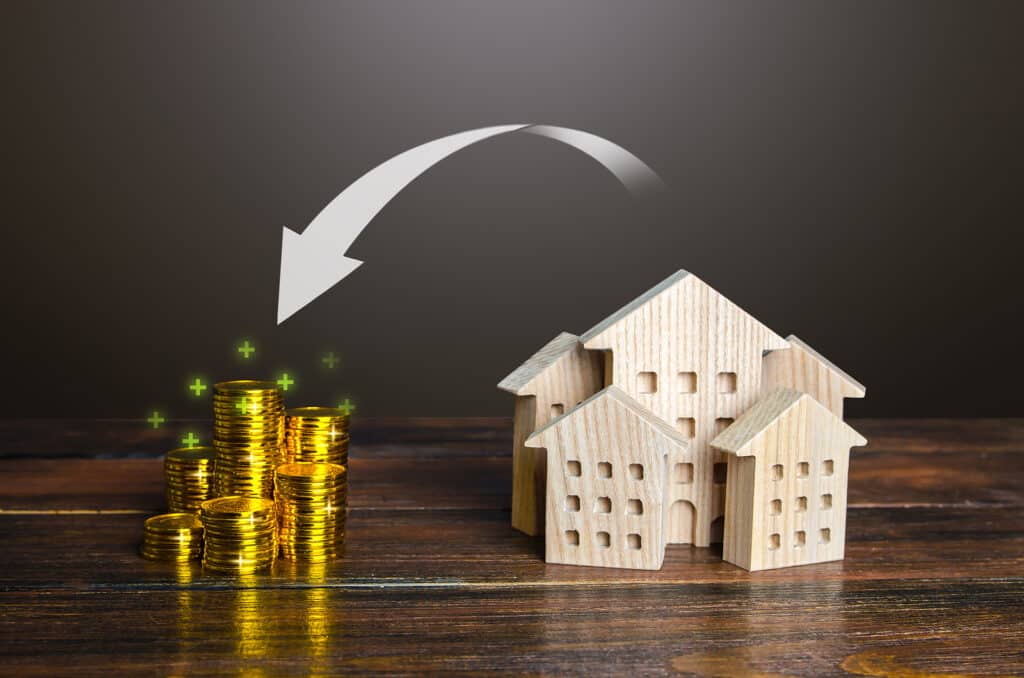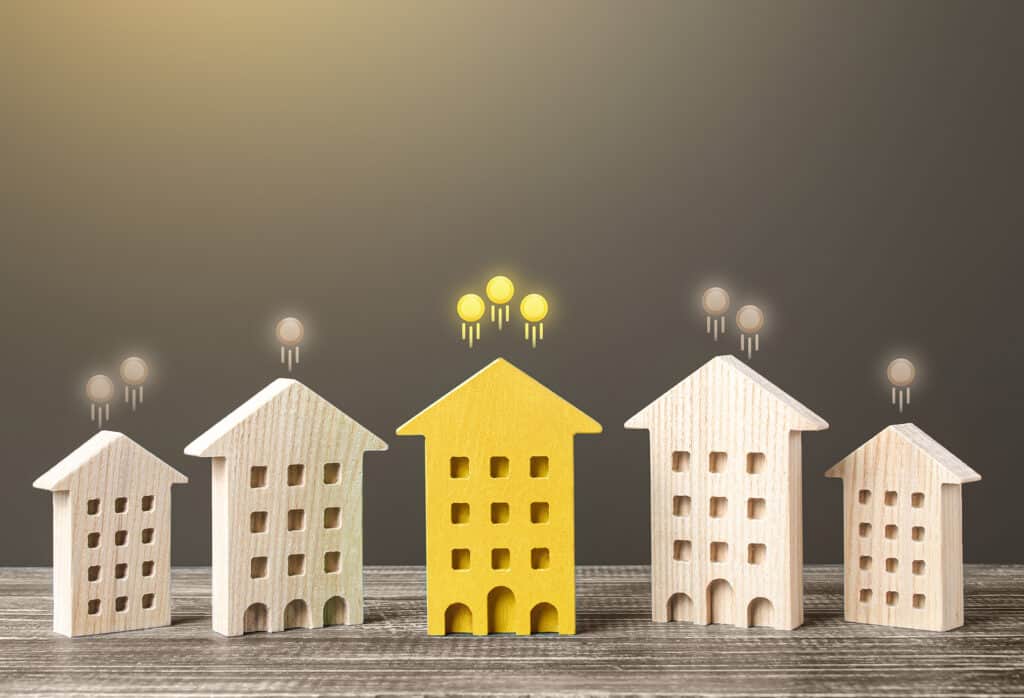Impact of Energy Efficiency on Home Resale Value
As I prepare to sell my property, I'm well aware of the growing importance of eco-conscious living and its impact on the real estate market. In this environmentally-aware era, energy-efficient homes are highly sought after, and I want to capitalize on this trend to maximize the resale value of my home. To achieve this, I'm seriously considering investing in various energy-efficient upgrades that will make my property stand out in the competitive market.
One of the first upgrades I'm contemplating is the installation of solar panels. Not only will this decision reduce my reliance on traditional energy sources, but it will also appeal to potential buyers who value sustainability and lower utility costs. Additionally, showcasing a home with energy-efficient windows will not only enhance its aesthetic appeal but also improve insulation, making it more energy-efficient year-round.
Understanding the Importance of Energy Efficiency
The concept of energy efficiency holds immense significance in today's world, extending far beyond being a mere buzzword. It encompasses a range of practices aimed at minimizing energy consumption while maintaining or even enhancing the performance of various tasks and systems. By adopting energy-efficient measures, we can not only achieve substantial cost savings but also make significant strides in reducing our environmental impact.
Several factors have converged to make energy efficiency a paramount concern, particularly in the realm of real estate. The continuous rise in energy costs has prompted individuals and businesses alike to seek ways to optimize their energy usage and reduce expenses. At the same time, there has been a growing global awareness of the urgent need for environmental conservation. Climate change, air pollution, and dwindling natural resources have emphasized the necessity of responsible energy consumption.
In response to these challenges, sustainable living practices have witnessed a surge in popularity. People are increasingly seeking homes and properties that are equipped with energy-efficient features, as they understand the long-term benefits of such investments. Consequently, these eco-friendly and energy-conscious properties have become more attractive to prospective buyers in the real estate market.

The Direct Impact of Energy Efficiency on Home Resale Value
The direct correlation between energy efficiency and home resale value is a well-documented and compelling aspect of the real estate market. Numerous studies, including one conducted by the University of California, have shed light on this connection, revealing that homes with green labels and energy-efficient features command a considerable premium of approximately 9% compared to non-labeled counterparts.
The impact of energy efficiency on home resale value can be attributed to two key factors:
Lower Operational Costs
Energy-efficient homes are designed to minimize energy consumption in various aspects of daily living. They boast features such as energy-efficient appliances, high-performance windows, superior insulation, and advanced heating, ventilation, and air conditioning (HVAC) systems. As a result, these homes require less energy for heating, cooling, and other operational needs. The reduction in utility costs becomes a compelling selling point for potential buyers, as it promises long-term savings on their energy bills. In a world where energy prices continue to rise, the prospect of lower operational costs is increasingly attractive to homebuyers.
Enhanced Comfort and Indoor Air Quality
Energy-efficient homes offer a host of benefits that contribute to improved comfort and indoor air quality. Their superior insulation and sealing minimize air leakage and drafts, creating a more controlled and pleasant indoor environment. These homes tend to maintain more consistent temperatures throughout different areas, ensuring that residents can enjoy a comfortable living space year-round. Moreover, the focus on indoor air quality means that energy-efficient homes often incorporate advanced ventilation systems that circulate fresh air and filter out pollutants, promoting a healthier living environment for occupants.
How to Increase Your Home's Value Through Energy Efficiency
Increasing the value of your home through energy efficiency is an investment that not only benefits you financially but also contributes to a sustainable future. From minor adjustments to substantial renovations, there are numerous strategies to boost your home's energy efficiency.
Energy-Efficient Appliances
A straightforward and effective step is to upgrade to Energy Star-rated appliances. These appliances are designed to consume significantly less energy and water—between 10% to 50% less—than their standard counterparts. While the initial cost might be higher, the savings on energy bills over the lifespan of these appliances make them a wise and practical choice for homeowners.
Smart Home Technology
Embracing smart technology can have a profound impact on energy efficiency. Smart thermostats, lighting systems, and energy monitors provide homeowners with greater control over their energy consumption. These devices can learn behavior patterns and automatically optimize energy usage, resulting in more efficient and cost-effective operations.
Insulation and Sealing
Improving the insulation of your home is a crucial step towards enhancing its energy efficiency. Proper insulation helps maintain a stable indoor temperature, reducing the need for excessive heating or cooling. By insulating attics, walls, and floors, you can significantly lower energy waste and create a more comfortable living space. Additionally, sealing cracks, gaps, and leaks around doors, windows, and vents prevents conditioned air from escaping, leading to substantial savings on heating and cooling costs.
Solar Panels
While a more substantial investment, installing solar panels can be a game-changer for your home's energy efficiency. By harnessing the power of the sun, solar panels generate clean electricity, significantly reducing reliance on traditional energy sources. Over time, the savings on electricity bills can offset the initial investment, and in some cases, excess power generated by solar panels can be sold back to the grid, providing an additional income stream. Beyond the financial benefits, homes equipped with solar panels have a distinct advantage in the real estate market, often faster and at a premium compared to homes without renewable energy systems.
Energy-Efficient Windows and Doors
Replacing old, inefficient windows and doors with energy-efficient alternatives can have a considerable impact on your home's energy consumption. Energy-efficient windows are designed to reduce heat transfer, keeping your home cooler in summer and warmer in winter, while energy-efficient doors minimize drafts and heat loss.
Landscaping and Passive Design
Strategic landscaping, such as planting shade-providing trees, can help regulate the temperature inside your home, reducing the need for excessive air conditioning. Additionally, adopting passive design principles during renovations or new construction ensures that the home is optimally oriented to maximize natural light and ventilation, reducing the reliance on artificial lighting and HVAC systems.

Additional Benefits of Energy Efficiency
Incorporating energy efficiency measures in your home brings about a multitude of advantages that extend far beyond the increase in property value. These additional benefits encompass various aspects of daily living, environmental impact, and overall well-being.
Lower Utility Bills
One of the most immediate and tangible advantages of energy efficiency is the reduction in utility bills. By employing energy-saving technologies and practices, homeowners can significantly lower their energy consumption. The installation of energy-efficient appliances, smart thermostats, and LED lighting, as well as proper insulation and sealing, all work together to minimize energy wastage and optimize resource usage. Consequently, households can enjoy substantial savings on their monthly energy bills, freeing up resources for other essential expenses.
Increased Comfort
Energy-efficient homes are designed to provide optimal comfort for occupants. By improving insulation and sealing, these homes can maintain more consistent indoor temperatures, eliminating cold drafts in winter and hot spots in summer. Advanced HVAC systems and smart thermostats ensure precise control over heating and cooling, allowing residents to customize their living environment for maximum comfort. As a result, occupants experience a higher quality of life within their homes, irrespective of external weather conditions.
Reduced Carbon Footprint
Embracing energy efficiency is an essential step towards reducing the carbon footprint associated with residential energy consumption. Energy-efficient practices and technologies decrease the reliance on fossil fuel-based energy sources, which are major contributors to greenhouse gas emissions. By conserving energy and transitioning to renewable energy systems, energy-efficient homes play a crucial role in mitigating climate change and preserving the environment for future generations.
Improved Public Health
Energy-efficient homes indirectly contribute to improved public health by reducing pollution from traditional energy sources. Fossil fuel-based power generation releases harmful pollutants and particulate matter into the air, leading to respiratory problems and other health issues. By shifting towards cleaner and renewable energy options, energy-efficient homes help decrease air pollution, creating healthier living environments for everyone in the community.
Long-Term Sustainability
Energy efficiency fosters long-term sustainability by promoting responsible resource management. As the global population continues to grow, the demand for energy will increase. Emphasizing energy efficiency ensures that energy resources are used more efficiently, prolonging their availability and supporting a sustainable energy future. Furthermore, energy-efficient practices serve as models for future construction and renovation projects, encouraging broader adoption of eco-friendly principles across the building industry.
Economic Benefits
Energy efficiency also carries economic benefits on a larger scale. Reduced energy consumption means lower overall demand for energy, which can lead to more stable energy prices and decreased dependence on imported energy. Moreover, energy-efficient technologies and industries create jobs and stimulate economic growth, driving innovation and competitiveness in the market.
Energy Efficiency on Home Resale Value FAQs
Q1: How does energy efficiency increase a home's resale value?
A: Energy efficiency can increase a home's resale value in several ways. Energy-efficient homes tend to have lower operational costs, which can be attractive to prospective buyers. Moreover, energy-efficient homes often provide enhanced comfort and indoor air quality, further increasing their appeal. Lastly, as the global focus on sustainability increases, homes with energy-efficient features are seen as more desirable and future-proof, leading to higher resale values.
Q2: What are some ways to make my home more energy-efficient?
A: There are numerous ways to increase your home's energy efficiency. This can range from installing Energy Star-rated appliances and smart home technologies, improving insulation and sealing gaps and leaks, to making a substantial investment in solar panels.
Q3: Do energy-efficient appliances really make a difference in my home’s energy consumption?
A: Absolutely. Energy Star-rated appliances can use between 10-50% less energy and water than their standard counterparts. Over the lifespan of these appliances, this can add up to substantial savings on your utility bills, making your home more appealing to potential buyers.
Q4: Are solar panels a good investment for increasing my home's resale value?
A: Yes, solar panels can be a significant investment, but they can substantially increase your home's value. Homes equipped with solar panels often sell faster and at a higher price than those without. Furthermore, they can drastically reduce your energy bills and may even generate income if you sell the excess power back to the grid.
Q5: Beyond increased resale value, what are other benefits of making my home more energy-efficient?
A: Beyond increased resale value, energy efficiency can lower your utility bills, increase the comfort of your home, and reduce your carbon footprint. It also contributes to improved public health by reducing pollution from fossil fuel energy sources.
Q6: Is energy efficiency a trend or is it here to stay?
A: Energy efficiency is definitely here to stay. With rising energy costs, increased environmental awareness, and a growing focus on sustainable living, energy efficiency is becoming a standard expectation in real estate, rather than just a passing trend. By investing in energy efficiency, you're future-proofing your home against potential changes in energy regulations and costs.
How to Make a Home More Energy Efficient?
To transform your home into an energy-efficient haven, start by conducting an energy audit to identify areas of improvement. Upgrade to Energy Star-rated appliances, which consume less energy, and replace traditional light bulbs with LED bulbs. Improve insulation by adding weather stripping, caulking gaps, and installing energy-efficient windows and doors.
Opt for a smart thermostat to regulate heating and cooling more efficiently. Consider solar panels to generate clean, renewable energy, and explore passive design principles during renovations to maximize natural light and ventilation. Small lifestyle changes like turning off lights and unplugging electronics when not in use can also contribute to reducing energy consumption and making your home more eco-friendly.
What Home Buyers Really Want?
In today's real estate market, home buyers prioritize several key features, and energy efficiency ranks high on their list of preferences. Prospective buyers seek homes with energy-efficient appliances and systems, such as Energy Star-rated devices and smart home technologies that allow for greater control over energy consumption. Proper insulation and sealing to ensure comfort and lower utility bills are also significant considerations.
The presence of renewable energy systems like solar panels adds considerable appeal, offering the promise of long-term cost savings. Buyers also appreciate sustainable building materials and construction practices that demonstrate the home's commitment to environmental responsibility. Overall, homes equipped with energy-efficient features and sustainable elements tend to attract more interest and command a premium on the real estate market.
Energy Efficiency Examples for Energy Saving Projects?
There are numerous energy-saving projects that can significantly enhance a home's efficiency. Upgrading to energy-efficient appliances, such as refrigerators, washing machines, and dishwashers, reduces electricity consumption while maintaining high performance. Installing a programmable or smart thermostat allows homeowners to optimize heating and cooling schedules, conserving energy when the home is unoccupied.
Upgrading windows to energy-efficient models with low-emissivity coatings and proper insulation improves temperature control and minimizes energy loss. Adding solar panels or other renewable energy systems provides a sustainable and cost-effective power source. LED lighting throughout the house reduces electricity usage and lowers long-term maintenance costs. Weatherizing the home by sealing cracks and improving insulation prevents energy wastage and enhances overall comfort.
Conclusion: Future-Proofing Your Home with Energy Efficiency
The journey of preparing my property for sale has evolved into an opportunity to align my values with the prevailing trends in the real estate market. In this environmentally-conscious era, where sustainability and eco-friendly living have become paramount, I am eager to embrace energy-efficient upgrades that will set my home apart and maximize its worth.
Through thorough research and understanding the significance of energy efficiency, I have come to appreciate how these simple yet transformative upgrades can positively influence not only my home's resale value but also the well-being of future occupants and the environment. The prospect of showcasing solar panels adorning my rooftop, energy-efficient windows framing serene views, and a smart thermostat ensuring comfort with minimal energy consumption fills me with a sense of pride and responsibility.
Sources
- https://www.energystar.gov/newhomes/features_benefits/better_resale_value
- https://www.mwalliance.org/blog/new-research-shows-myriad-benefits-energy-efficient-homes
- https://myhome.freddiemac.com/blog/homeownership/20200825-selling-green-home
- https://www.rcenergy.com.au/post/resale-value-of-energy-efficient-homes
- https://www.rcenergy.com.au/post/resale-value-of-energy-efficient-homes
- https://www.researchgate.net/publication/287373900_Does_the_housing_market_value_energy_efficient_homes_Evidence_from_the_energy_star_program
- https://www.iea.org/reports/multiple-benefits-of-energy-efficiency/asset-values

